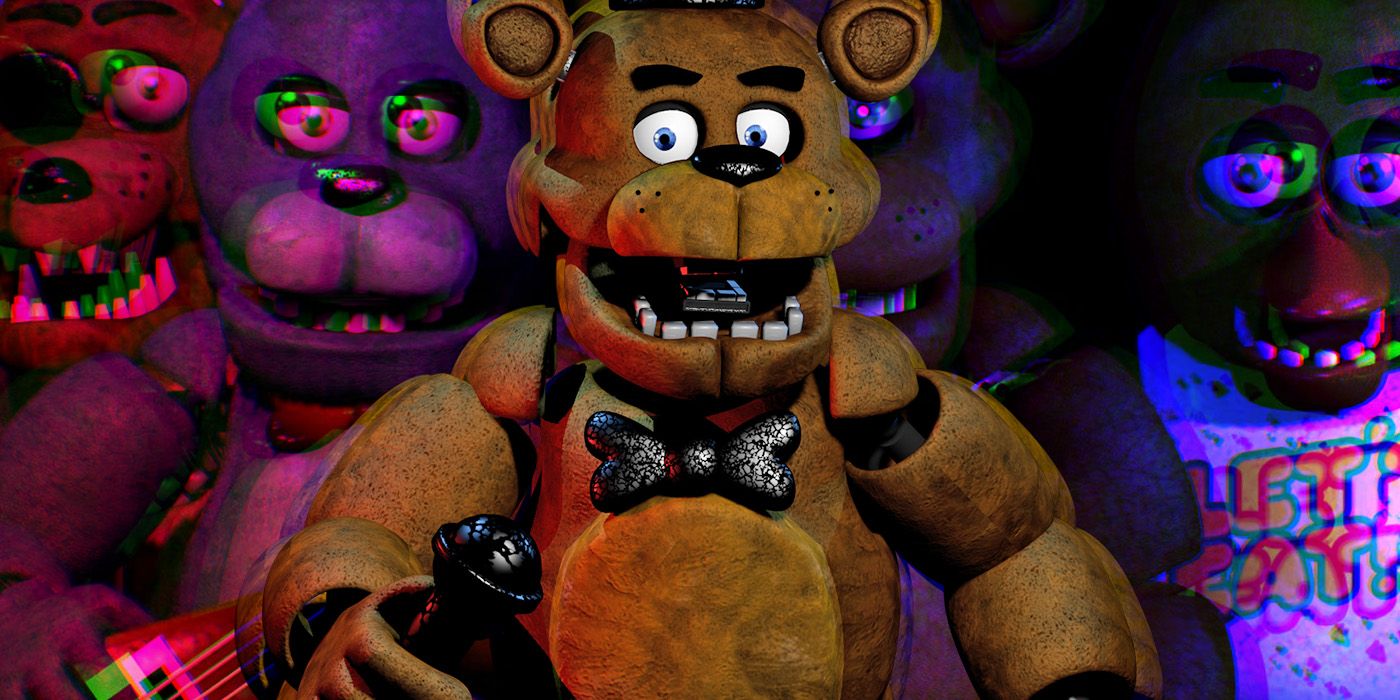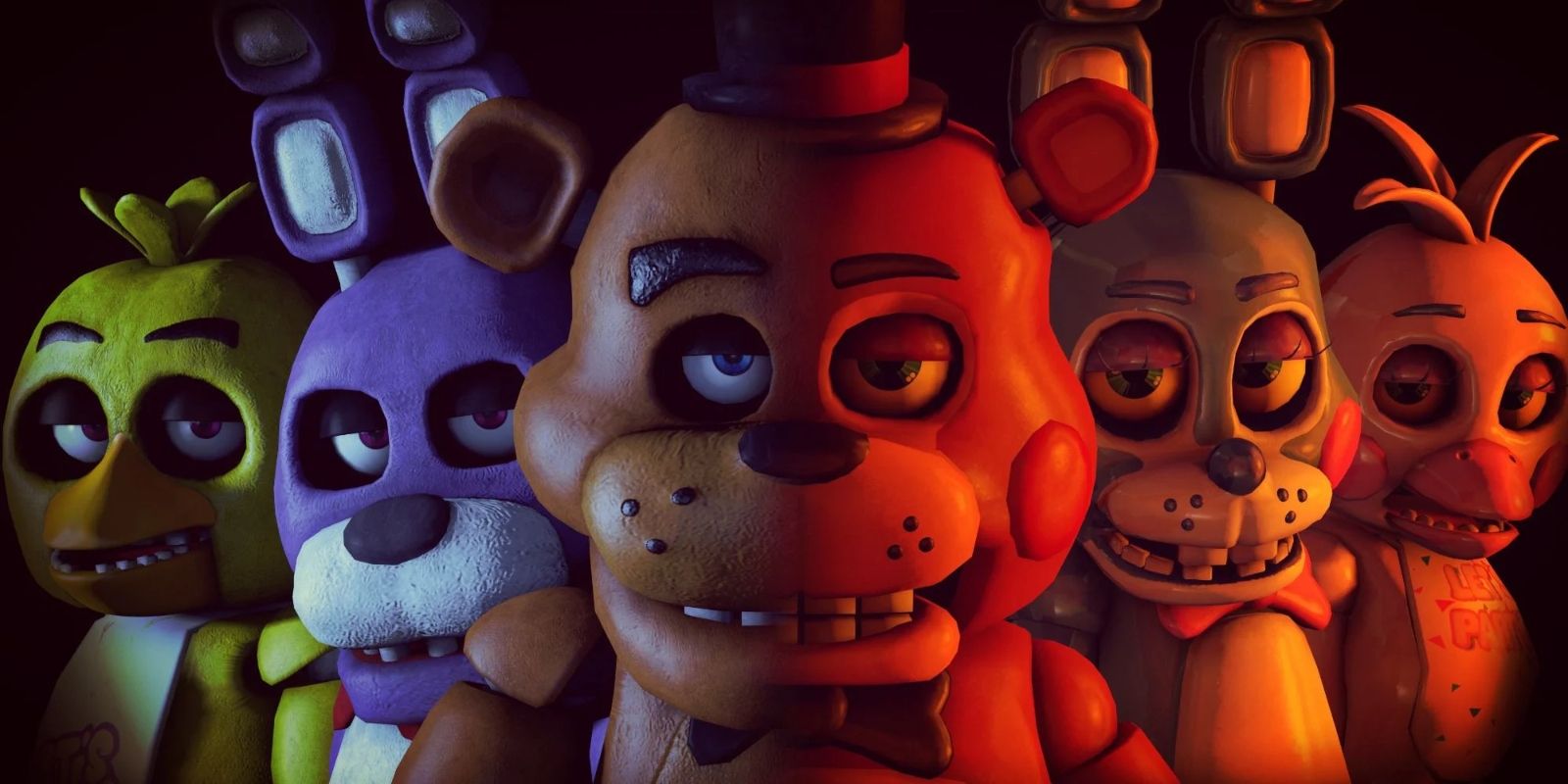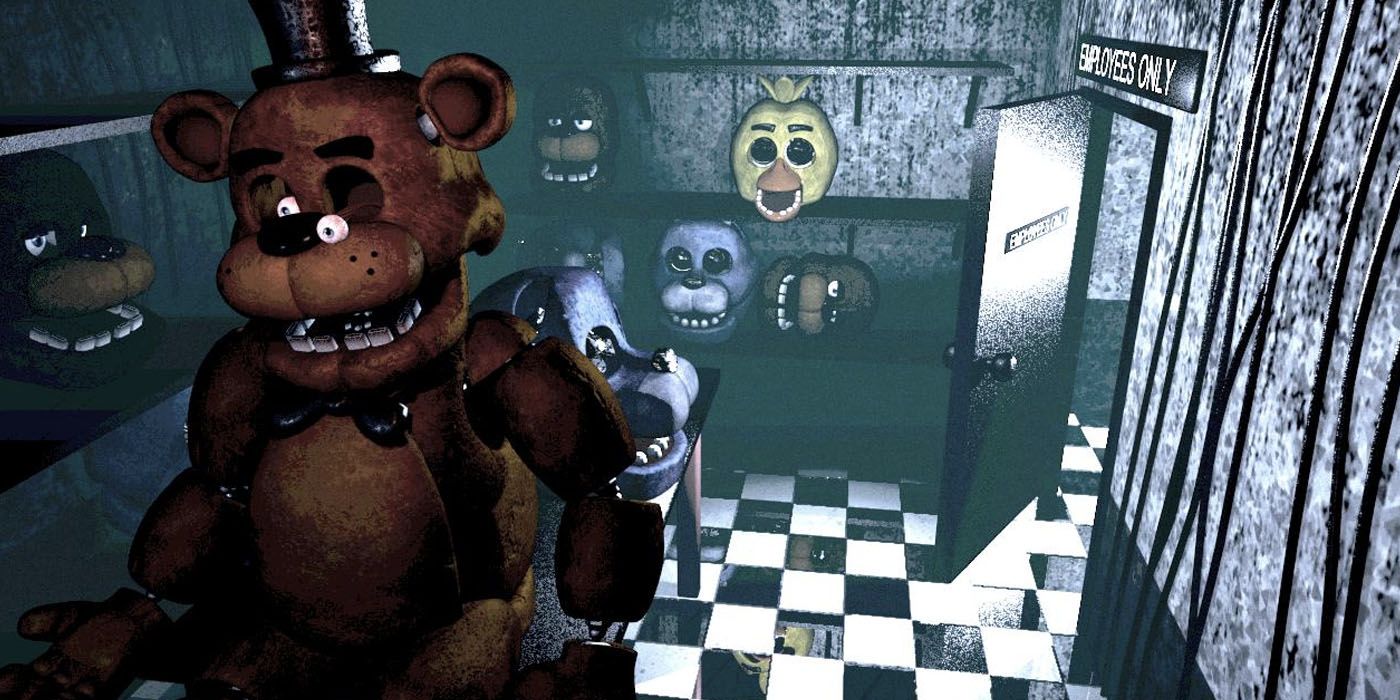There's something inherently creepy about animatronics that sets off little warning bells in the brain suggesting they're not quite right. The movement and shapes put them in the uncanny valley, and the fear of them coming to life and doing us harm is a persisting one. From Lilo and Stitch: The Series to Gravity Falls to the upcoming season of Big Hero Six: The Series, eatery animatronics coming to life to attack is a well-worn trope that continues to hit the fanbase just right.
With that in mind, it's no surprise that a horror game built on this trope would do well. Enter Five Nights at Freddy's, a franchise created by Scott Cawthon after receiving criticism on an earlier game for making characters "too creepy." Taking this criticism and cranking it up to eleven, Cawthon released the first FNAF game in late 2014 to critical acclaim. In six short years, FNAF has become a smash-hit franchise, with multiple mainline games and spinoffs, a book series and even a movie in the works.
Whether it's through the design, gameplay or characters, this franchise became massively popular -- if you were on the internet from 2014 onwards, you knew about these games, even if you never played them. And despite not being the first to play with this trope (the Gravity Falls episode featuring it released a little after the first FNAF game, and the Lilo and Stitch episode "Phantasmo" predates it by at least a decade), the franchise is undoubtedly the poster child for creepy animatronics, being the first on anyone's tongue when confronted with the trope. But with seven main games, five spinoff games and another on the way, there's a question that needs to be asked: should Freddy's finally close for good?
As an indie horror game, FNAF is fairly straightforward: you, the player, have to survive being trapped with psycho killer animatronics using the various tools at your disposal. If they catch you, you're dead, usually with an accompanying jump scare that occasionally crashes the game. Each game provides a variation on this core gameplay, along with information on the franchise's lore which leaves people asking where OSHA or the health inspectors were.
The series plays on every creepypasta to ever plague pizzeria animatronics, and early games released in rapid succession -- FNAF 2 released only a couple of months after the first game, and two more were released in the next year. Churning out games this quickly (basically twelve games in six years) is impressive to say the least. Triple-A companies are rarely this productive, and the franchise is a series of indie games, meaning a small team and a small budget.
Even while toying with the premise and still keeping base gameplay intact provides enough in each game for players to spend several hours on. But there's also the concern of creator burnout. Cawthon intended to end the series with FNAF4, but the popularity of the franchise demanded more entries, which didn't do as well as the initial quartet. The sequels didn't perform as well as the first game either, dipping down before picking up again with the VR game FNAF: Help Wanted.
There's also the issue that comes with popular media in modern times: when something suddenly gets popular, and it get old just as fast. Thanks to the internet, a piece of media can reach peak saturation very quickly, and FNAF was no exception. Everyone from YouTubers to DeviantArt artists covered this game to the point that a person who had never touched a horror game could identify any of the characters on sight. If you were into the games, it was fun to see them at every turn; if you weren't, you probably got sick of seeing those scary animatronic animals after a few weeks. Fans may be excited at the prospect of another game, but those who remember the glut of media relating to FNAF before are probably rolling their eyes at yet another entry.
So should Freddy Fazbear and company retire? Well, yes -- so should Jason and Freddy and Kong and Godzilla and definitely Dracula and the Wolfman. Yet these characters persist for generations, and as long as demand is there, they're going to keep coming back for more. People like being scared -- in a controlled environment, that is.
Horror media provides this controlled terror with the promise that it'll be over soon. Five Nights at Freddy's, no matter which game it is, provides the service that all horror games offer: fear in an environment which can be conquered. As long as these games can continue to deliver on this promise, fans will continue to flock back to Freddy Fazbear's, no matter what OSHA might say.



